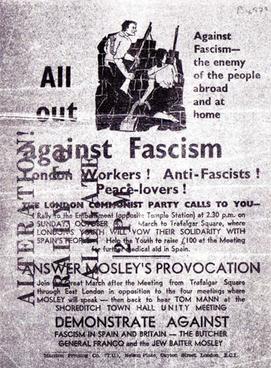
The Battle of Cable Street was a series of clashes that took place at several locations in the East End of London, most notably Cable Street, on Sunday 4 October 1936. It was a clash between the Metropolitan Police, sent to protect a march by members of the British Union of Fascists led by Sir Oswald Mosley, and various anti-fascist demonstrators including local trade unionists, communists, anarchists, British Jews, and socialist groups. The anti-fascist counter-demonstration included both organised and unaffiliated participants.

The British Union of Fascists (BUF) was a British fascist political party formed in 1932 by Oswald Mosley. Mosley changed its name to the British Union of Fascists and National Socialists in 1936 and, in 1937, to the British Union. In 1939, following the start of the Second World War, the party was proscribed by the British government and in 1940 it was disbanded.
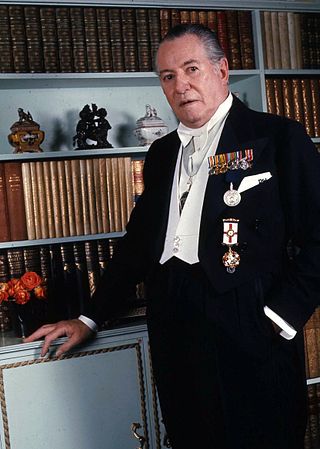
Dennis Yates Wheatley was a British writer whose prolific output of thrillers and occult novels made him one of the world's best-selling authors from the 1930s through to the 1960s.

The Imperial Fascist League (IFL) was a British fascist political movement founded by Arnold Leese in 1929 after he broke away from the British Fascists. It included a blackshirted paramilitary arm called the Fascists Legion, modelled after the Italian Fascists. The group espoused antisemitism and the dominance of the 'Aryan race' in a 'Racial Fascist Corporate State', especially after Leese met Nazi Party propagandist Julius Streicher, the virulently racist publisher of Der Stürmer; the group later indirectly received funding from the Nazis. Although it had only between 150 and 500 members at maximum, its public profile was higher than its membership numbers would indicate.
A number of real-life inspirations have been suggested for James Bond, the fictional character created in 1953 by British author, journalist and former Naval Intelligence officer Ian Fleming (1908–1964); Bond appeared in twelve novels and nine short stories by Fleming, as well as a number of continuation novels and twenty-six films, with seven actors playing the role of Bond.

Alexander Raven Thomson, usually referred to as Raven, was a Scottish politician and philosopher. He joined the British Union of Fascists in 1933 and remained a follower of Oswald Mosley for the rest of his life. Thomson was considered to be the party's chief ideologue and has been described as the "Alfred Rosenberg of British fascism".

Grimmen is a town in Vorpommern-Rügen, a district in the Bundesland Mecklenburg-Vorpommern, Germany. Prior to 2011, when district reforms were made in Mecklenburg-Vorpommern, it was the capital of the now bygone Nordvorpommern district, which was abolished and merged to create the district of Vorpommern-Rügen.
Robert Forgan was a British politician who was a close associate of Oswald Mosley.

Greyshirts or Gryshemde is the common short-form name given to the South African Gentile National Socialist Movement, a South African Nazi movement that existed during the 1930s and 1940s. Initially referring only to a paramilitary group, it soon became shorthand for the movement as a whole.

Mary Sophia Allen OBE was a British political activist known for her defence of women's rights in the 1910–1920s and later involvement with British fascism. She is chiefly noted as one of the early leaders of the Women's Police Volunteers. Allen repeatedly sought to challenge or modernise the existing systems of the time, ensuring the Women's Police Service could become an auxiliary force after women were admitted into certain British police forces. She stood once for the House of Commons as an Independent Liberal, turning over her Women's Auxiliary Service to breaking the General Strike of 1926. Thereafter she met and talked with European fascists and anti-communist brigades, entailing frequent trips abroad and publicly joining the British Union of Fascists in 1939. In retirement Allen was an activist for animal rights.
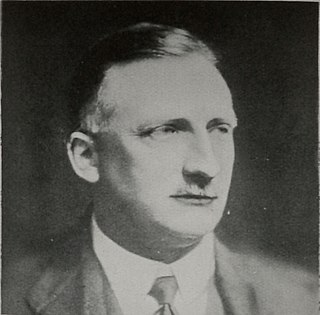
Robert Byron Drury Blakeney, generally known as R. B. D. Blakeney, was a British Army officer and fascist politician. After a career with the Royal Engineers, Blakeney went on to serve as President of the British Fascists.
Patrick James Boyle, 8th Earl of Glasgow,, was a Scottish nobleman and a far right political activist, involved with fascist parties and groups.
British fascism is the form of fascism which is promoted by some political parties and movements in the United Kingdom. It is based on British ultranationalism and imperialism and had aspects of Italian fascism and Nazism both before and after World War II.

The Duke De Richleau is a fictional character created by Dennis Wheatley who appeared in 11 novels published between 1933 and 1970.

The Satanist is a black magic/horror novel by Dennis Wheatley. Published in 1960, it is characterized by an anti-communist spy theme. The novel was one of the popular novels of the 1960s popularizing the tabloid notion of a black mass.

The Battle of Stockton, took place on 10 September 1933 at the Market Cross in the High Street of Stockton-on-Tees, County Durham, England. It was a clash between members of the British Union of Fascists (BUF) and anti-fascist demonstrators from the small local Communist Party and National Unemployed Workers Movement (NUWM).
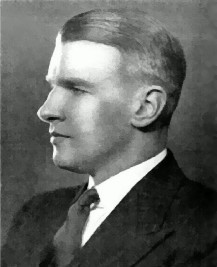
James Larratt Battersby was a British fascist and pacifist, and a member of the Battersby family of hatmakers of Stockport, Greater Manchester, England. He was forced to retire from the family firm due to his politics and was interned by the British government during the Second World War along with other British fascists. During his detention he came to believe that Adolf Hitler was Christ returned, and after the war wrote The Holy Book and Testament of Adolf Hitler. He committed suicide by leaping into the paddle wheels of a ferry.
Victor Cecil Burgess was a British fascist who was one of the principal figures in the British League of Ex-Servicemen and Women (BLESMAW).
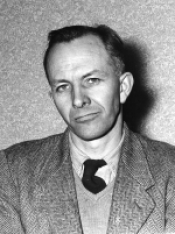
Robert Row (1915–1999) was an English fascist from Lancaster, a member of Oswald Mosley's British Union of Fascists (BUF) who was detained by the British government under Defence Regulation 18B during the Second World War. After the war, he wrote and edited British fascist publications and remained a believer in Mosley until his death.
The Battle of Carfax (1936) was a violent skirmish in the city of Oxford between the British Union of Fascists (BUF) and local anti-fascists, trade unionists, and supporters of the Labour Party and the Communist Party of Great Britain. The battle took place inside Oxford's Carfax Assembly Rooms, a once popular meeting hall owned by Oxford City Council which was used for public events and located on Cornmarket Street.














